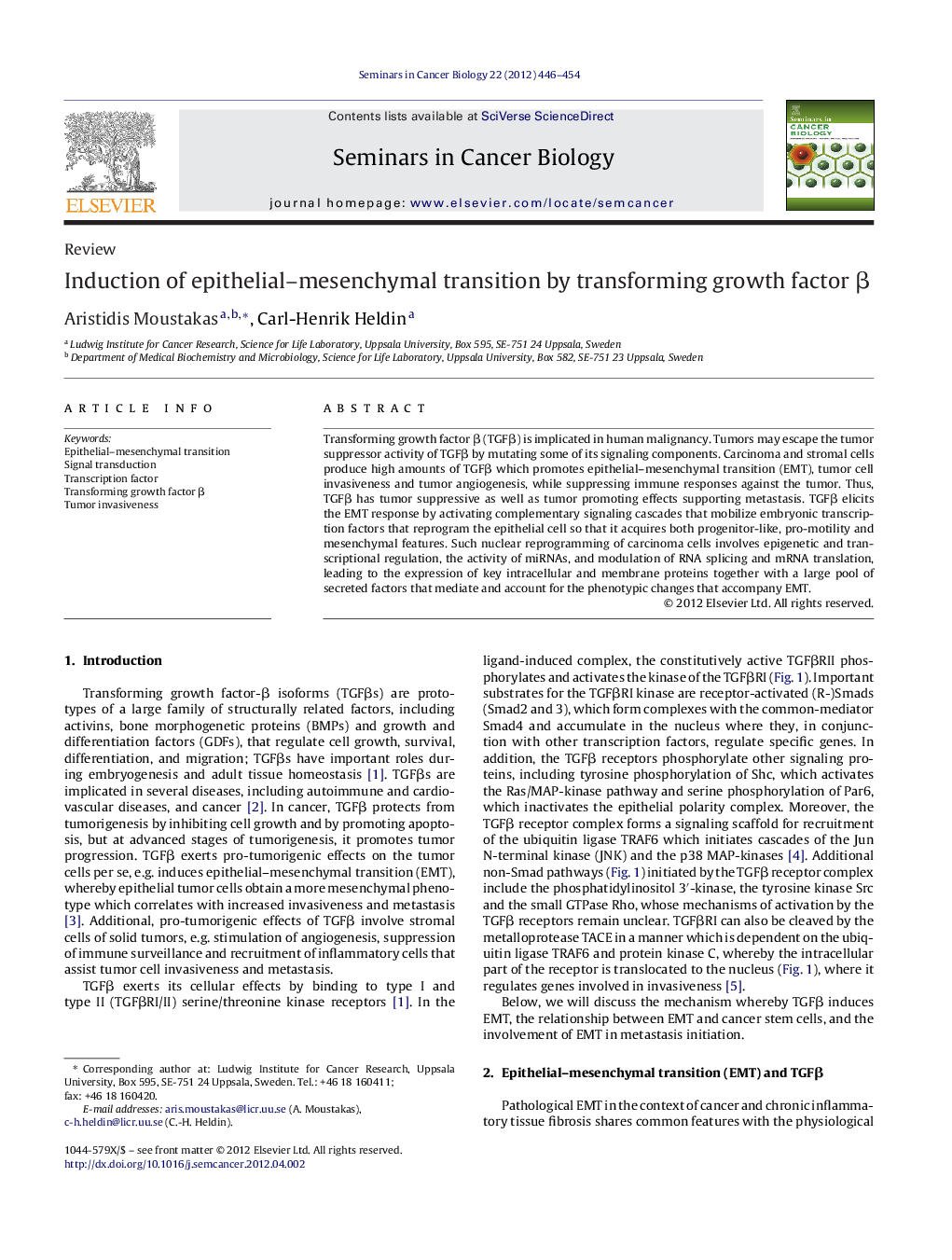| Article ID | Journal | Published Year | Pages | File Type |
|---|---|---|---|---|
| 2023771 | Seminars in Cancer Biology | 2012 | 9 Pages |
Transforming growth factor β (TGFβ) is implicated in human malignancy. Tumors may escape the tumor suppressor activity of TGFβ by mutating some of its signaling components. Carcinoma and stromal cells produce high amounts of TGFβ which promotes epithelial–mesenchymal transition (EMT), tumor cell invasiveness and tumor angiogenesis, while suppressing immune responses against the tumor. Thus, TGFβ has tumor suppressive as well as tumor promoting effects supporting metastasis. TGFβ elicits the EMT response by activating complementary signaling cascades that mobilize embryonic transcription factors that reprogram the epithelial cell so that it acquires both progenitor-like, pro-motility and mesenchymal features. Such nuclear reprogramming of carcinoma cells involves epigenetic and transcriptional regulation, the activity of miRNAs, and modulation of RNA splicing and mRNA translation, leading to the expression of key intracellular and membrane proteins together with a large pool of secreted factors that mediate and account for the phenotypic changes that accompany EMT.
